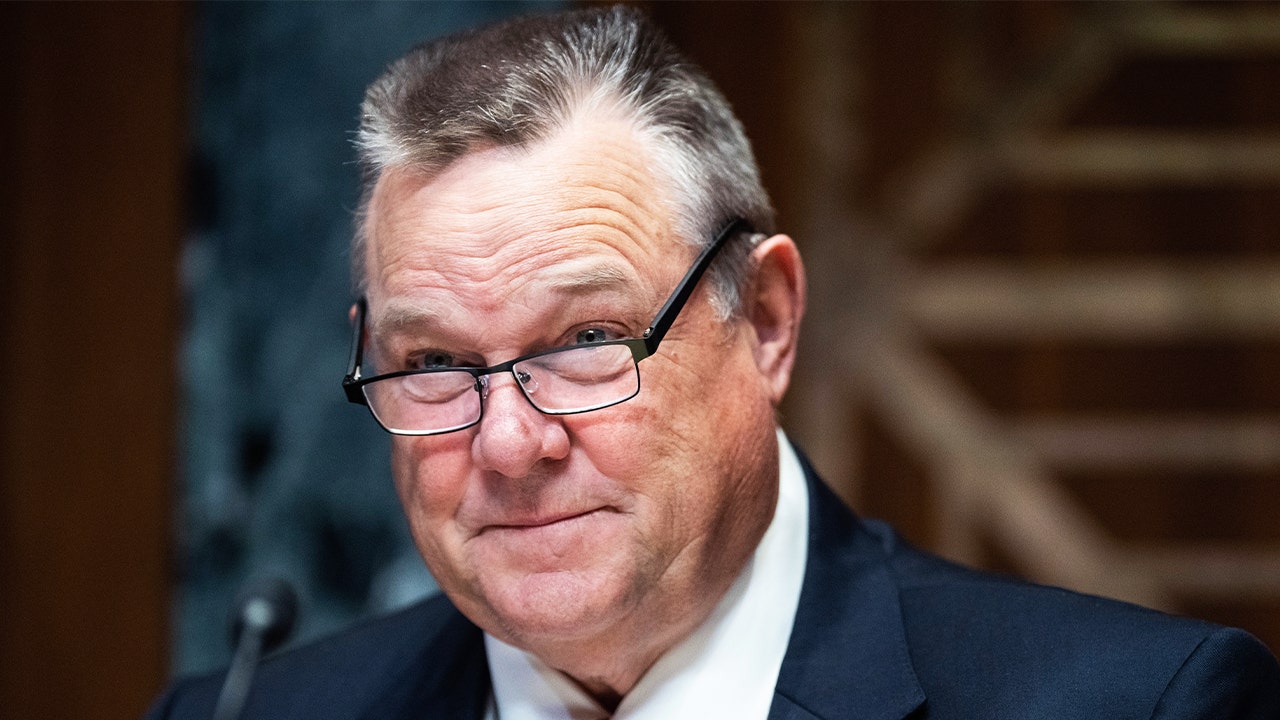Senate Democrats are heading into Tuesday's elections facing the fight of their lives: defending a 51-49 majority with a map so formidable that Republicans have called it their best opportunity in a decade to gain ground.
Republicans have already all but gotten that down to 50-50, with West Virginia Sen. Joe Manchin, an independent who caucuses with Democrats, retiring, likely assuring that GOP Gov. Jim Justice will replace him in one of the deepest red states in the country.
Now, Democrats are basically needing to pull a straight flush to keep themselves in the majority, leaning on several battle-hardened incumbents and House members to keep red- and purple-state seats in their column while also eyeing an extremely small set of highly difficult flip opportunities.
How to watch ABC News live coverage of 2024 election results.
And even if they succeed in defending all the blue seats, Democrats may still find themselves in the minority if former President Donald Trump defeats Vice President Kamala Harris, with vice presidential nominee JD Vance serving as the GOP tiebreaker.
Here are five Senate races to watch Tuesday that will help determine Senate control and the sliver of races where Democrats are on offense.

Sen. Jon Tester attends a Get Out The Vote rally for fellow democrats on Nov. 1, 2024 in Livingston, Mont.
William Campbell/Getty Images
Montana
Democratic Sen. Jon Tester, a three-term incumbent, has emerged from tough races before, despite running in unfriendly territory. But his race for a fourth term may be his toughest challenge yet.
Tester is running against businessman and former Navy SEAL Tim Sheehy, a wealthy candidate who was highly sought after by Senate GOP Leader Mitch McConnell and Sen. Steve Daines, the chair of Senate Republicans' campaign arm who has made it his mission to unseat Tester, his fellow Montanan.
The polls are daunting for Tester -- he's behind by more than 5 points in 538's polling average, and he hasn't led in the metric since July 9.
Tester has leaned on his authenticity as a seven-fingered farmer and third-generation Montanan to suggest that he hears the concerns of his constituents and is fighting for them. He's also hoping that an abortion referendum on the ballot will help boost turnout among Democrats.
Sheehy, meanwhile, has run as a businessman who accuses Tester of being out of touch with the increasingly Republican state and Washington overall being dysfunctional. He's faced a slew of attacks from Tester, including questions over how he suffered a gunshot wound to his forearm and the fact that he's not originally from Montana, a state that has long prioritized a sense of place but has increasingly seen wealthy out-of-staters buy land.
Still, Tester is thought to be facing tough odds despite his past successful high-wire acts. Trump won the state by over 16 points in 2020, and while Tester is anticipated to run ahead of Harris, such a margin at the top of the ticket could be insurmountable for the incumbent senator.
Unless Democrats can pick off a GOP-held seat, a Tester loss would likely hand Republicans the Senate majority.

Senator Sherrod Brown speaks with a voter during a campaign stop at Yonder Brunch and Vibe, on Oct. 30, 2024 in Cleveland.
Jeff Swensen/Getty Images
Ohio
Democratic Sen. Sherrod Brown is also running for his fourth term in a state that has gone from purple to red, imperiling his chances of reelection.
Brown is running as a blue-collar populist, sporting a gravelly voice and often wrinkled suit that emphasize his everyman bona fides. A vocal union supporter and opponent of some international trade agreements before it was cool, Brown has consistently overperformed with the kind of white voters without a college degree who used to vote Democratic but have defected en masse to Trump.
He's also leaned heavily on the issue of abortion after 57% of Ohioans supported a referendum last year protecting access to the procedure. He's also launched ads featuring support from law enforcement as a way to separate himself from national Democrats' brand.
Brown is facing Bernie Moreno, a Colombian immigrant and businessman. Moreno has worked hard -- and spent millions -- to cast Brown as too liberal for a state that went for Trump by 8 points twice. He, too, has focused on social issues, including abortion and transgender athletes participating in female sports.
Moreno has never led in the 538 polling average, but he has significantly cut into Brown's edge, now trailing by just 1.2 points after being down by 6.5 points at the end of July. Moreno has been aided by a flood of outside spending from Republicans in Washington who are looking to build as large of a majority as possible, particularly as Montana appears to be increasingly out of reach for Democrats.
Here too, the presidential margin is anticipated to play a significant role. Like Tester, Brown is expected to run ahead of Harris. But if Trump expands his margin of victory a third time around, Brown could face significant headwinds.

Arizona Republican Senate candidate Kari Lake speaks during the rally of Republican U.S. vice presidential nominee Senator JD Vance in Scottsdale, Ariz., Nov. 2, 2024.
Go Nakamura/Reuters
Michigan
Democratic Sen. Debbie Stabenow's retirement opened a top opportunity for Republicans to fill a purple-state vacancy.
The race pits Democratic Rep. Elissa Slotkin against former GOP Rep. Mike Rogers. Slotkin has a 3.5-point edge in 538's polling average, as well as a fundraising advantage, but the lack of an incumbent makes the race particularly appetizing for Republicans.
Slotkin has leaned on her past as a CIA analyst who deployed to Iraq, Rogers' votes against abortion protections and her crossover appeal, including her endorsement from former Rep. Liz Cheney.
Rogers, meanwhile, has embraced Trump after past criticism and attacked Slotkin over transgender athletes and worries over the manufacturing of electric vehicles (Slotkin repeats that she lives on a dirt road but wants the "next generation" of vehicles to be made in the state).
A massive X factor in both the presidential and Senate races in the state is the war in Gaza, which has infuriated Michigan's substantial Arab population and risks leaving voters displeased with and disaffected from President Joe Biden and Democratic candidates this year.
Pennsylvania
Democratic Sen. Bob Casey, a three-term incumbent, is a fixture in Pennsylvania -- his father was a former governor and the Casey name rings out across the state.
However, he'll face a well-heeled opponent in Dave McCormick, a former hedge fund executive who was heavily recruited to run this year. He ran in 2022, but lost to Dr. Mehmet Oz in the GOP primary. Oz went on to lose to now-Sen. John Fetterman, D.
Pennsylvania is home to fierce and competitive presidential-level fighting and the Senate race is no different. Casey is up by 2.6 points in the 538 polling average, though that has shrunk from a more than 8-point lead in August.
Casey and Democrats have attacked McCormick over abortion, his residence in Connecticut and past business ties to China. McCormick, meanwhile, has embraced Trump after bumping heads with him in 2022 after he endorsed Oz, and accused Casey of being out of touch with Pennsylvanians and too entrenched in Washington, pushing voters to "make a change" on Tuesday.

Republican candidate for Senate Mike Rogers speaks, as Republican presidential nominee and former President Donald Trump holds a campaign rally at Macomb Community College in Warren, Mich., Nov. 1, 2024.
Brian Snyder/Reuters
Arizona
Dealmaking Sen. Kyrsten Sinema, an independent who caucuses with Democrats, announced in March that she wouldn't run for a second term, setting up a prime flip opportunity for Republicans.
However, Kari Lake, the failed 2022 gubernatorial nominee and GOP Senate nominee this year, is on her back foot.
Democratic Rep. Ruben Gallego has held a consistent lead in 538's polling average even as Trump is thought to have an edge in the state on the presidential level.
The race represents a rare case of low name recognition being advantageous, particularly in a state like Arizona that values pragmatism.
Gallego has an extensive past as a progressive, but he wasn't a particularly well-known lawmaker outside of his district, offering him a chance to rebrand himself as a moderate, including supporting things like increased border enforcement after hammering Trump's border wall.
Lake, meanwhile, became a MAGA rock star in 2022, particularly after she panned "McCain Republicans" and refused to accept her loss in the gubernatorial race that year. She has sought to moderate this year, including reaching out to former Gov. Doug Ducey, but she has a more cemented image of a firebrand than Gallego, making it difficult to appeal to centrists in and around Phoenix who hold the key to victory in Arizona.
She still has not conceded the results of her 2022 race or Trump's 2020 loss.
The race could offer key clues as to how Democrats could keep Latino voters in their column amid widespread worries of defections this year. Gallego, of Colombian and Mexican descent and a combat veteran, has said that he has talked to Latino voters who say they'll support both him and Trump.
The race will also serve as a barometer of sorts on the margin in the overall Senate. Republicans will rue a missed opportunity if Gallego wins, but if Lake is able to pull a victory off, it likely means that Republicans have had a good night elsewhere too.
Democrats' offensive opportunities
Democrats are playing in a small handful of Republican-held seats, though they face steep odds in flipping any of them.
GOP Sens. Ted Cruz of Texas and Rick Scott of Florida are facing off against Rep. Colin Allred and former Rep. Debbie Mucarsel-Powell, respectively. FiveThirtyEight's polling averages show both Democrats within striking distance, and the national party has begun spending money there, particularly in Texas. However, both red states are tough territory for Democrats to gain ground in, particularly in a presidential year.
Independent Dan Osborn is also challenging GOP Sen. Deb Fischer in Nebraska. Osborn has insisted he won't caucus with either party in the Senate, but Republicans have worked hard to paint him as a Democrat in centrist's clothing. Polling indicates a tight race, but Osborn too faces headwinds in a state with a heavy Republican lean.

 4 settimane fa
30
4 settimane fa
30















 English (US) ·
English (US) ·